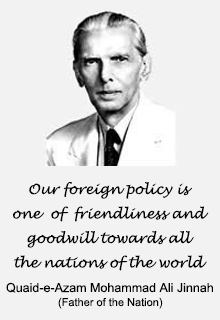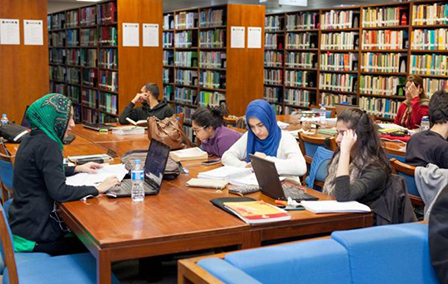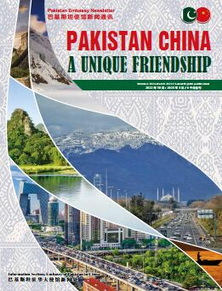

Pakistan Study Centers

Confucius Institute in Pakistan

Advisory for Students

Embassy College

Embassy of Pakistan Newsletter
News & Events
Remarks by Ambassador Khalil Hashmi at 12th World Peace Forum Panel Discussion on Cooperation between China and South Asia, Tsinghua University 7 July 2024
July 07,2024
Mr. Hu Shisheng,
Director, South Asian Studies Department,
China Institutes of Contemporary International Relations
Distinguished Ambassadors and fellow speakers,
Ladies and Gentlemen,
Good evening and DA JIA HAO!
I wish to begin by thanking the leadership of Tsinghua University for inviting me to participate in this prestigious Forum and to speak at this important panel.
The overall theme of this year’s Forum and this panel resonate very well. The three principles, Justice, Unity and Cooperation, captured in the theme, provide a sound framework for a ‘win-win’ relationship between China and South Asia.
Through justice, for example, we can nurture relationships that are based on the universal principles of equality and adherence to international law by everyone; through unity, we can advance indivisible security for all states, big or small, in the region; and finally through cooperation, we can secure mutual benefits for everyone by harnessing each other’s comparative advantages and sharing experiences in diverse fields ranging from poverty alleviation and green development to the models of state governance.
Most important, by adhering to these principles, we can promote a culture of ‘mutual respect’ that acknowledges that each State in our region brings to the table unique strength, quality and capability.
Ladies and Gentlemen,
I would like to draw on Pakistan’s longstanding relationship with China to build a case for a mutually beneficial, respectful and harmonious relationship between China and South Asia. Our two countries will celebrate the completion of 75 years of our diplomatic ties in 2026. Throughout these decades, as the world underwent multiple changes, transitioning from a bipolar to unipolar and eventually to a multipolar world, the friendship between China and Pakistan remained a steadfast constant.
Our relationship was not deterred by the ebbs and flows of international relations. It rather grew in resilience and strength, evolving into an ‘All-Weather Strategic Cooperative Partnership’ - a title that befittingly captures the nature and trajectory of China-Pakistan relationship. The vitality of our partnership has been sustained by unwavering commitment by our two countries to the principles of mutual respect, equality, trust and justice in our long list of collaborative initiatives.
The China Pakistan border agreement of 1963 served as a strong impetus for bilateral cooperation between our two nations. The agreement recognized the importance of sovereignty and territorial integrity; embodied the principles of equality, reciprocity and good neighborliness; demonstrated a commitment to peaceful co-existence and mutual benefit; set a precedent for settlement of borders through diplomatic means; and paved the way for connectivity by fostering an environment of trust and understanding that has continued to characterize China-Pakistan relationship to this day.
Drawing lessons from China-Pakistan experience, I would like to recognize China’s efforts towards peaceful settlement of borders with other countries in the region. I strongly believe that resolution of border issues, not just between China and South Asian nations, but also between South Asian countries themselves, can be a key driver to fully harness sustainable cooperation and regional integration.
75 years of South Asian history is a testament that realization of a peaceful and prosperous region, home to over 25 % of the world population and stuck in perpetual cycle of poverty, underdevelopment, lack of connectivity, is contingent on resolving core issues, especially the UN recognized dispute of Jammu & Kashmir. I take this opportunity to thank China for its consistent and principled position on Jammu and Kashmir that stresses faithful compliance with UN Charter and Security Council resolutions for a just and lasting settlement of this dispute.
Ladies & Gentlemen,
Excellencies,
While acknowledging the current challenges to regional cooperation, I would like to highlight that fortunately history is on the side of a vibrant China South-Asia relationship. The centuries-old connections between the people of China and South Asia must guide and inspire the current and future trajectory of our relationship. The ancient Silk Road served as a conduit for exchange of goods, ideas, philosophies and religions between our two regions. As traders, monks and travellers traversed the Karakorum Mountains, they shared commodities, culture, skill and wisdom with local people.
The legacy of these contacts is profoundly visible in the form of our shared civilizational heritage such as the ancient Gandhara civilization. More recently, the common struggles against colonialism and shared journeys of economic development have also rendered a strong foundation for solidarity between our nations. We must build on these commonalities to promote peace, stability and shared development in our region, while refraining from pursuit of hegemony, interference and domination.
The China Pakistan Economic Corridor (CPEC), launched a decade ago, stands as a modern day epitome of the ancient Silk Road. Driven by the spirit of common development, the CPEC has forged a new era of economic collaboration, regional connectivity and shared prosperity. Pakistan is proud for being the first country where China under the visionary leadership of President Xi Jinping launched the Belt and Road Initiative (BRI). The CPEC has emerged as another driver of the iron-clad friendship between China and Pakistan.
Let me take this opportunity to thank China for supporting the development journey of Pakistan through critical investments under CPEC, made at a time when Pakistan needed them the most. The CPEC has now entered the second phase of high quality development, promising a new era of economic opportunities and trans-regional cooperation. We are now focused on prioritizing industry, modern agriculture, IT and mining to launch the second generation of CPEC projects. The recent visit of the Prime Minister of Pakistan Mohammad Shehbaz Sharif to China was significant in this regard.
During the highly productive visit, the leadership of our two countries renewed the consensus on launching five new corridors under CPEC, namely growth, innovation, inclusivity, open and green corridors. These corridors resonate closely with the conceptual framework of new quality productive forces as well as with the national development strategy of Pakistan which calls for investment driven exports, equitable development and environmental sustainability.
During the Prime Minister’s visit, we also unveiled a ground-breaking trade and investment initiative that aims to harness the complementary strengths and competitive advantages of Chinese and Pakistani investors for undertaking joint ventures and partnerships in specific sectors. This initiative, steered by the concept of ‘sustainable partnership’, envisages the development of Pakistan’s industrial sector and export potential, while allowing the Chinese investors to leverage Pakistan’s competitive labor costs, skilled and dedicated workforce and a huge consumer market.
The Prime Minister’s visit also saw our two sides signing on the modalities of third party participation in CPEC projects. This landmark consensus has now opened a new horizon for regional inclusivity, economic integration and connectivity that transcends the borders of China and Pakistan.
Ladies and Gentlemen,
Sustainable development and economic growth provide a strong foundation for regional peace and security. Similarly, dialogue among nations, recognizing social, cultural and religious diversity, is the cornerstone for building a community of shared future in the region. China’s three landmark initiatives i.e. Global Security Initiative (GSI), Global Development Initiative (GDI) and Global Civilization Initiative (GCI), though global in perspective, offer a practical blueprint for sustainable development, security cooperation and cultural exchanges in our region.
Under these initiatives, our countries can cooperate to deal with the region’s most sensitive and shared security challenges, both traditional and non-traditional, such as hunger, poverty, climate change, terrorism and national extremism. With their emphasis on the purposes and principles of the UN Charter, these initiatives present a unique value for the promotion of true multilateralism in our region. We must leverage them to deepen people to people linkages through collaboration among our private sector enterprises, educational institutions, media platforms and tourism networks. This is one area that needs our particular attention.
Excellencies,
I have no doubt that China Pakistan ties shall always remain a source of peace, stability and development for South Asia. Pakistan shall always leverage its special and unique relationship with China to contribute to regional security, integration and prosperity. This unique bilateral relationship provides an inspiring foundation for cooperation between China and the South Asian region aimed at building a brighter future for all.
I thank you,
Xie Xie!


.jpg)
.jpg)
.jpg)
.jpg)
.jpg)
.jpg)
.jpg)







